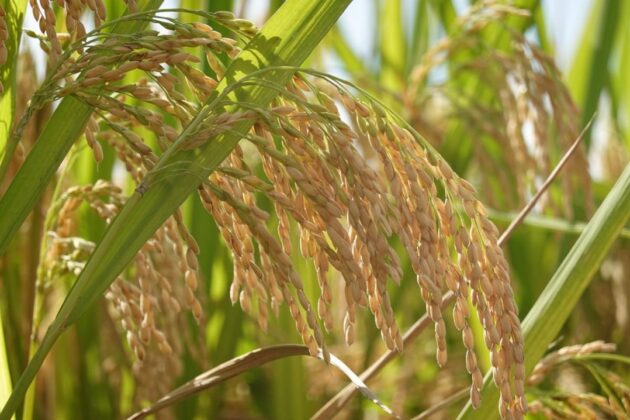
LBDA mops up 150 tonnes of rice in price stabilization move to avert losses » Capital News
KISUMU, Kenya, Sep 2 – The Lake Basin Development Authority (LBDA) has collected 150 metric tonnes of paddy rice from the West Kano Irrigation Scheme in a major post-harvest intervention to support farmers and curb losses.
LBDA Managing Director Wycliffe Ochiaga said the mop-up exercise is designed to stabilize rice prices, reduce spoilage, and strengthen the value chain.
“We are cushioning farmers against low market prices and the risk of spoilage. This operation ensures their hard work doesn’t go to waste,” Ochiaga told journalists in Kisumu on Tuesday.
He explained that the initiative aligns with the government’s Bottom-Up Economic Transformation Agenda (BETA), which prioritizes agricultural productivity, rural development, and improved livelihoods.
According to Ochiaga, LBDA is providing a ready market for farmers, with all collected rice promptly milled at its Kisumu processing plant.
Promt milling
The program will soon be rolled out to other rice-growing zones under the Authority, including Kano, Chiga, Kimira and Oluch, Nyatike, and Budalang’i.
“This is peak harvest season in most of these schemes. We are offering competitive prices and handling logistics to help farmers deliver their produce efficiently,” he said.
The structured market approach, he added, shields farmers from exploitative middlemen while ensuring no harvest goes to waste.
The West Kano Irrigation Scheme, a flagship project in western Kenya, remains a key contributor to regional rice production. To support processing, LBDA operates a Kisumu-based milling plant with a capacity of four tonnes per hour, as well as a drying floor that farmers can access free of charge.
“We offer drying services so that once the paddy reaches the right moisture level, farmers can sell it directly to us,” Ochiaga explained, noting the strategy is designed to improve quality, minimize post-harvest losses, and make local rice more competitive nationally and regionally.
He also commended the collaboration between LBDA field teams, county officials, and farmer groups, calling it crucial to the operation’s success.